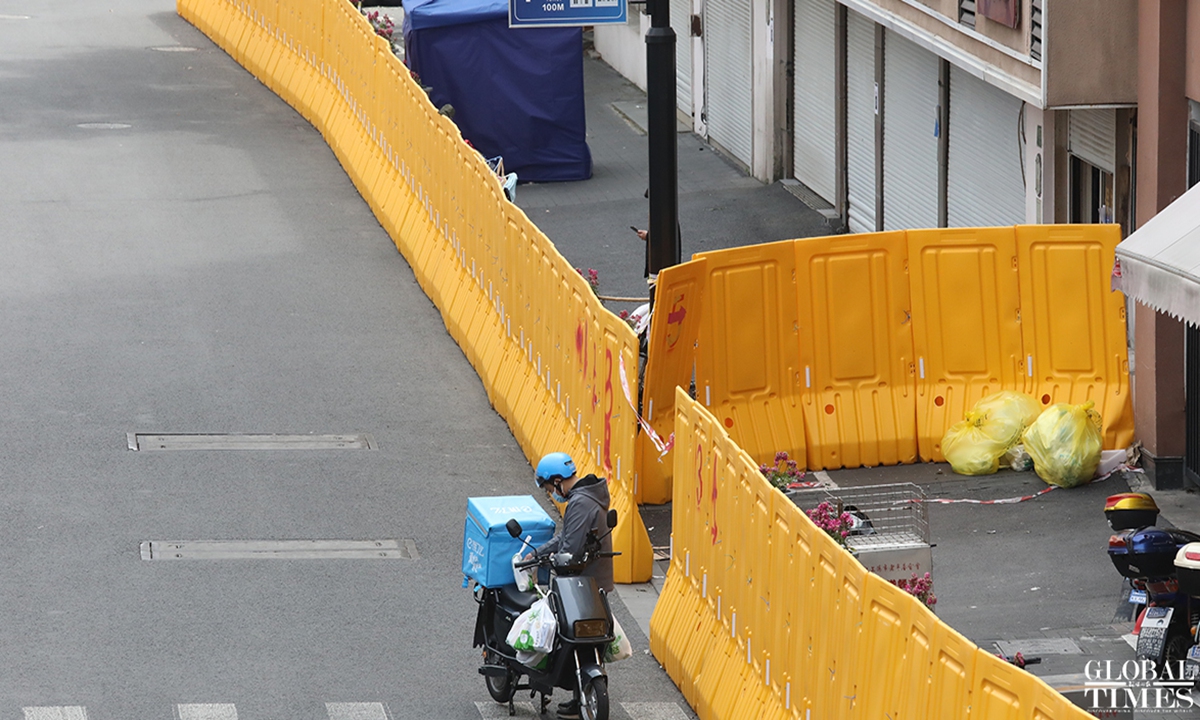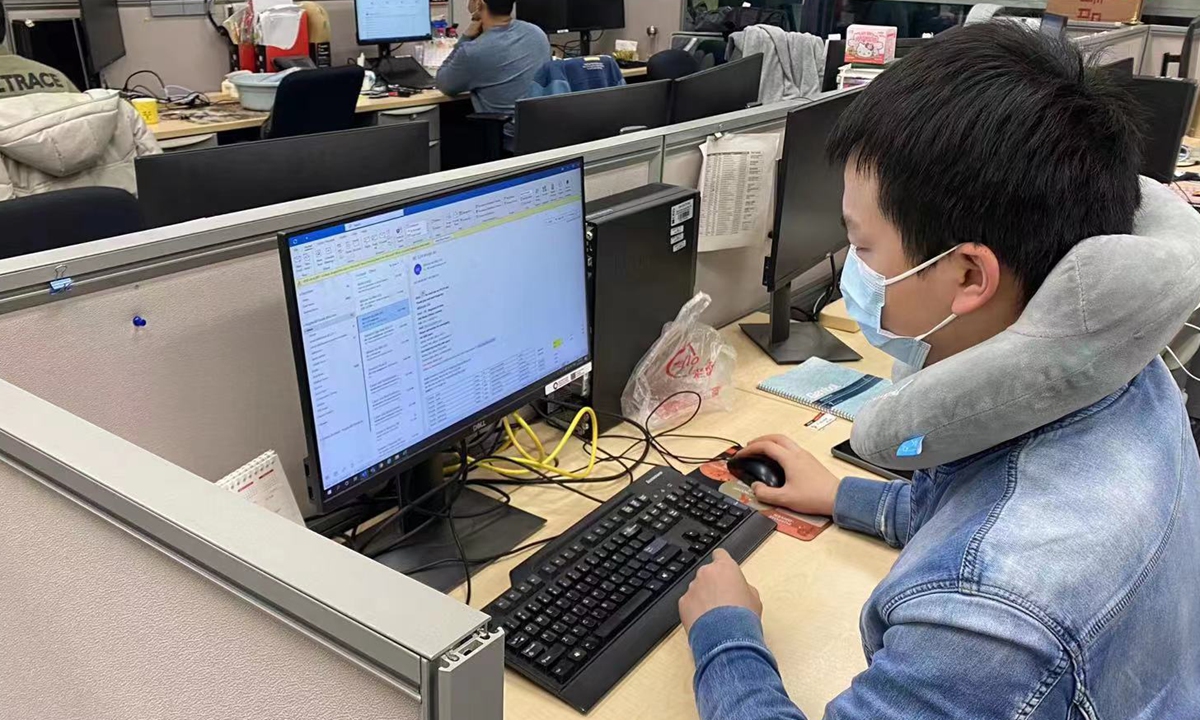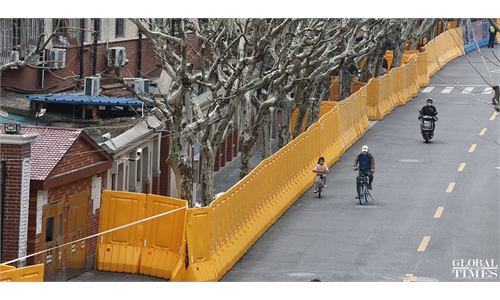
On Kangding road, Jing'an district of Shanghai, street barriers are placed to manage traffic outside the neighborhood communities. Some residents were jogging, while sanitation workers were busy collecting garbage.Photo: Hu Gong
Financial institutions in Shanghai, including banks and exchanges, are beefing up efforts to maintain services while they cooperate with the city's most stringent anti-virus measures to date in a bid to stamp out a fierce new wave of COVID-19 cases.Many of them rolled out emergency plans after local authorities announced on Sunday plans to seal off the metropolis in two stages, starting with the eastern side, which includes the Pudong New Area, China's financial hub that is home to a cluster of financial institutions, and then moving to the western part.
The plans differ from company to company, but most of them include flexible staff redeployment, with the majority of employees working at home, while a small number of people stay on-site to keep businesses running smoothly.
At Citibank, most of its employees in Shanghai are now working from home, but at least one employee from each work group has voluntarily chosen to work on-site in the Citibank Tower to help solve technological or transaction problems, as well as meet client demand when home workers have problems serving customers, said Lin Hai, head of mainland and Hong Kong corporate sales and solutions at Citi.
"The employees who remain at work in offices are still very optimistic and joke that they are staying in a luxurious river-view room," Lin told the Global Times.
Yang Ji, executive vice president at Citibank China Co, told the Global Times that the bank has been actively responding to government proposals to take COVID-19 preventive measures, while at the same time making arrangements to keep business running.
The company has allocated work equipment like internet phones and laptops for employees who work from home, while encouraging salespeople and dealers to communicate closely to avoid any negative impact from strong market volatility.
Other foreign banks that have offices based in eastern Shanghai are taking a similar approach, and some of them are using digital means to safeguard information security on the remote end.

Essential employees of DBS Bank temporarily live inside their offices to ensure transactions. Photo: Courtesy of DBS Bank
A staffer in the PR department of Singapore-based DBS Bank told the Global Times on Wednesday that some colleagues are spending day and night at the bank's main building and data center to ensure smooth transactions and file necessary reports. Their daily needs are well supplied.
Because of such a timely response, almost no banks or other foreign institutions in Shanghai saw their services suspended completely because of the recent mass testing.
BNP Paribas, a France-based bank whose subsidiary in the Chinese mainland is based in Shanghai, told the Global Times that its global market department has kept in close communication with the companies' different sections to help meet clients' service requirements.
The bank completed four asset-backed security deals in onshore markets during March.
"We have confidence in the resilience of China's economy, and believe that the difficult time will pass," the bank's statement read.
Many residential neighborhoods have already been sealed off for collective nucleic acid tests, but Shanghai didn't launch large-area closed-off management until this week.
The financial institutions' ability to keep services running is also backed by the continued operating of key financial infrastructure providers in Shanghai, which launched emergency response mechanisms to maintain services after the closed-off management order was put in place, according to a report published by the People's Bank of China, China's central bank, on Wednesday.
For example, the China Foreign Exchange Trade System opened remote internet and virtual networks to channel in nearly 200 key institutions, while the Shanghai Gold Exchange has arranged shifts to provide 24/7 services at the exchange, the report showed.
China UnionPay, which is based in Pudong, dispatched an emergency support team of about 80 people to stick to their posts in shifts and provide 24/7 services to keep the interbank transfer clearing system running stably, the company said in a statement it sent to the Global Times on Wednesday.
So far, there have been no signs of drastic volatility in Shanghai's financial markets. The benchmark Shanghai Composite Index rose 1.96 percent to close at 3,266.6 points on Wednesday.






